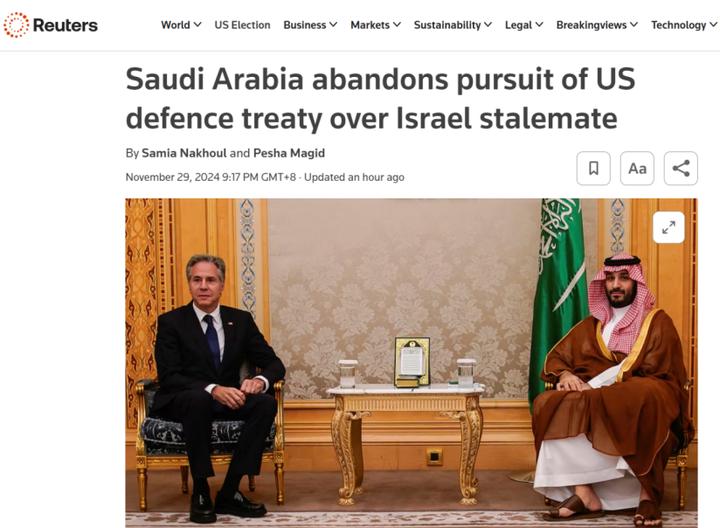Saudi Defense Alliance Shift: A Strategic Realignment
Saudi Arabia declines US defense agreement citing disagreements over Israel-Palestine issues, marking a significant shift in Middle East geopolitics and revealing deeper strategic considerations beyond regional conflicts.

The recent Saudi decision to decline a US defense agreement represents a complex strategic realignment rather than a simple diplomatic disagreement. This development emerges against the backdrop of evolving Middle Eastern dynamics and shifting global power relations.
The Saudi position reflects several key strategic calculations. First, the Kingdom’s security environment has transformed significantly following its reconciliation with Iran, reducing immediate threats from neighboring states. This new regional stability has diminished Saudi Arabia’s reliance on American military protection, a cornerstone of their relationship since the 1930s.
The proposed US defense agreement came with stringent conditions, including requirements for Saudi Arabia to normalize relations with Israel and restrictions on military cooperation with other nations, particularly China. However, the Saudi leadership, under Crown Prince Mohammed bin Salman, has demonstrated increasing autonomy in its foreign policy decisions.
Saudi Arabia’s military procurement strategy has evolved considerably. While historically dependent on American military equipment, the Kingdom has diversified its defense partnerships. Chinese drones, for instance, have proven effective in regional conflicts, offering cost-effective alternatives to American systems. This practical experience has influenced Saudi military modernization plans.
The economic dimension cannot be overlooked. Saudi-US relations have traditionally been anchored in the petrodollar system, with Saudi oil sales denominated in US dollars. However, recent global trends show increasing interest in alternative payment arrangements, particularly in Asia, where Saudi Arabia’s primary oil markets now exist.
Regional dynamics also play a crucial role. Saudi Arabia maintains a firm position that Palestinian statehood must precede any normalization with Israel. This stance reflects both domestic political considerations and broader Arab world leadership aspirations. The Kingdom’s growing economic and diplomatic ties with Asian powers, particularly China, provide additional leverage in international relations.
This strategic shift underscores a broader trend in global politics - the emergence of a multipolar world where traditional alliances are being reevaluated. Saudi Arabia’s decision reflects not just regional considerations but a calculated response to changing global power dynamics and economic realities.
The response from regional players has been telling. Iran’s measured reaction and China’s continued engagement with Saudi Arabia indicate a carefully calibrated diplomatic environment. Meanwhile, smaller Gulf states watch closely, as this development could signal broader regional realignment.
For Saudi Arabia, this decision represents a delicate balance between maintaining strategic autonomy and managing international relationships. While not completely severing ties with the United States, it signals a more independent foreign policy trajectory aligned with the Kingdom’s evolving national interests.
The implications extend beyond military cooperation into economic and political spheres, potentially affecting everything from arms sales to regional stability. This development may mark the beginning of a new chapter in Middle Eastern geopolitics, where traditional power dynamics are increasingly challenged by emerging regional and global forces.